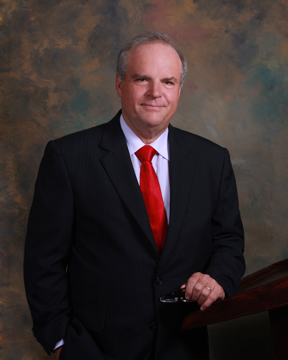Search for Tomorrow
Long-term care has changed for the better, so a bounty of choices exists for every need
 Long-term care in America has undergone drastic changes over the years as regulations, residents’ needs and funding have changed. Over the past two decades, assisted living has been created and evolved to offer housing to a growing number of seniors as part of the long-term care continuum. This component of long-term care was previously nonexistent. Its emergence has occurred due to changing family dynamics, economic forces and the needs of our aging population. As each of these shift, so does the industry. Assisted living communities, although highly regulated, are forced to offer comprehensive, consistent and accessible housing because that is what the consumer demands. The strongest regulatory system in long-term care has always been the residents’ and their families’ needs and expectations. Consumers of long-term care force the providers to continue to increase their offerings in terms of quality and consistency at a fair market price.
Long-term care in America has undergone drastic changes over the years as regulations, residents’ needs and funding have changed. Over the past two decades, assisted living has been created and evolved to offer housing to a growing number of seniors as part of the long-term care continuum. This component of long-term care was previously nonexistent. Its emergence has occurred due to changing family dynamics, economic forces and the needs of our aging population. As each of these shift, so does the industry. Assisted living communities, although highly regulated, are forced to offer comprehensive, consistent and accessible housing because that is what the consumer demands. The strongest regulatory system in long-term care has always been the residents’ and their families’ needs and expectations. Consumers of long-term care force the providers to continue to increase their offerings in terms of quality and consistency at a fair market price.
New Orleans Living met with Dr. Charles A. Cefalu, the section chief of geriatric medicine at LSU Health Sciences Center, a professor of internal medicine and a co-director of the Center on Aging, to discuss long-term care.
How do you feel about long-term care housing options in the greater New Orleans area?
They are good to excellent. We have some very good nursing homes in the New Orleans area. We also have some very good alternatives, such as assisted living for patients that are candidates before they go into a nursing home, where they have more cognitive and physical function. We have some great adult day care, which is a delightful option but one of the most well-kept secrets in day care because it’s not funded by Medicare and it’s all private pay, but it’s a wonderful option not only for the long-term care patient, but the caregiver gets some respite whether they’re employed or just to get away from the stress of caregiving. The patient gets socialization all day, so they sleep well at night and they get a meal, too. It is a terrific option. There are also long-term care hospitals for acute care for long-term care problems and independent-living facilities. New Orleans is blessed with this diversity of options.
Since November is National Alzheimer’s Disease Awareness Month, please tell us about specific housing needs for those afflicted with dementia or Alzheimer’s.
Some dementia patients require closed units. These are not that common. The senior nursing facilities are able to provide supervision with wander-guards if the patients tend to do that. And we have the adult day centers and assisted living for any form of dementia patient not ready for long-term care.
How has the health of Louisiana’s senior population changed in the last decade from a clinical perspective?
The health has worsened because people are living longer because life expectancy has increased because of all of these wonderful interventions: in the ’50s we had the antibiotics, then we went to the cardiovascular era with various interventions and cholesterol medications and life expectancy increased into the 77 age group and now we’re in the era of trying to slow down and prevent cancer. Therefore we have an aging population that is living longer with more chronic illnesses so that population now requires more care than 10 years ago, so we’re seeing patients more likely to be in assisted living or a nursing home because their conditions are worse. Also, there are now some drugs that are being researched that actually slow down the process and halt the process, which will be the next big step for Alzheimer’s and dementia.
What is the best way for a long-term care housing consumer to make an informed decision on where to live?
They can use the Senior Living Facilities publication that comes out annually. If it’s a nursing home, the consumer can go to medicare.gov and hit the “Nursing Home Compare” button and look at the quality of each nursing home. Then they can take a tour of each facility and ask a lot of questions before moving in. Also, the consumer needs to know that just because an older person fell does not mean that the health-care provider or facility did anything wrong. There are numerous reasons for an older person to fall. The key is if there are adequate interventions to prevent injury from a fall.
